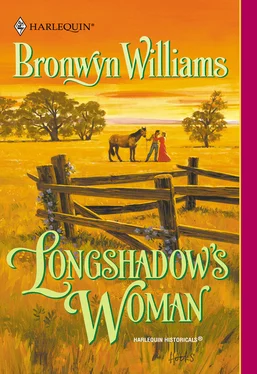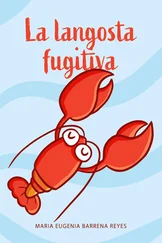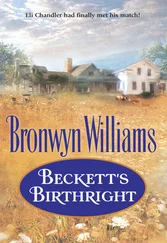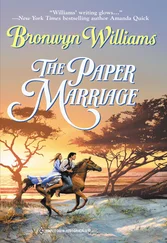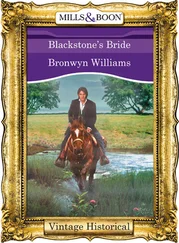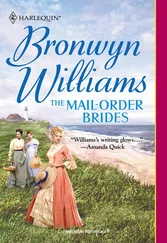During Darther’s absence she’d been making good progress. A gambling man, her husband was seldom home if there was a horse race, a dog race, a cockfight or a card game anywhere within a three-day ride. He would come home, more often drunk than sober, and stay just long enough for her to sponge and air his fancy suits and launder his shirts and smallclothes, and then he’d be off again. As the racing season neared, he’d be gone sometimes for weeks at a time.
Once he left home again, Carrie was in the field every day at cock-crow, digging and prying, playing tug-of-war by pitting that stubborn mule against equally stubborn stumps. It was backbreaking work, even with two good hands, but she was determined to have every damned stump—every blessed stump—dug up, dragged off to the side and burned. She’d been whacking away at gum roots when she’d missed and nearly chopped her thumb off. The fact that her hand had been filthy at the time hadn’t helped, but one way or another she intended to be ready to plant come spring, and nothing as puny as a bad hatchet cut that refused to heal was going to keep her from doing it, either.
It was Emma, her elderly widowed neighbor, who had told her about the prisoners who were sometimes leased out for farm labor. “County allows so much a day for feed. As long as a man’s not wanted for murder, you can take him out on parole and save the county his keep. I don’t think it’s on the books that way, but as long as you sign papers saying you’ll return him in as good condition as when you took him out, they’ll look the other way. Let him escape, and I reckon they can lay a claim against you for misuse of county property.”
They’d been idly discussing ways of getting the job done, seeing as how Carrie’s hand was so slow to heal. She couldn’t afford to hire anyone, even if she could have found someone willing to work on her husband’s farm. “Darther left me a little money last time he was home, but I spent it on meal and sugar and cracked corn. Wonder what kind of prisoner I could rent for the price of three dresses, two straw hats and a pair of shoes with holes in the bottom?”
She’d been half teasing, and Emma had laughed. Thank goodness one of them was able to laugh. “You’ll manage,” the older woman had said. “I’ve got some money laid by. You can pay me back from your first crop. For interest you can give me half a bushel of corn for my chickens.”
Carrie had thought about it all the way home that day last week when she’d gone to take her friend a basket of fried rabbit and turnips. It had been Emma who had befriended her nearly three years ago when Darther had first brought her to this godforsaken place to cook and clean and service his needs whenever he was sober enough to attempt the marriage act.
It had been Emma who had told her all she knew about that particular part of a wife’s duties. More importantly, she’d taught her all she knew about planting. Carrie still had much to learn, but driven by dreams, desperation and determination, she refused to waste another planting season. By now she knew better than to expect any help from her husband. Even if he was home long enough, and remained sober enough, he was hardly inclined to soil his hands with honest labor. Racing and gambling were all the man ever thought about. He was convinced that Peck, half Arabian, but so ugly no one ever suspected him of being a runner, would one day make him a fortune.
Peck was fast, all right. Carrie had watched him being put through his paces out on the road, but even if the big, ugly gelding won a fortune, Carrie would never see a penny of it. Darther would plop it all down on the next race or cockfight or hand of cards, and lose every last penny. Not only was he a loser, he was a stingy loser. He might come home sporting a new silk vest with his fancy frock coat and checkered trousers, but just let her ask for money to buy something useful, like a new cow, or a plow that wouldn’t fall apart at the first use, and she’d end up on her backside with a swollen jaw. Drunk or sober, her husband had a treacherous temper.
When Darther had accepted her in payment of a debt he was owed by her uncle, she had been so eager to escape her uncle that she’d allowed herself to be used that way. She had even begun to dream all over again. She had seen him around the store a time or two before that, and noticed his fine fancy clothes. He’d boasted a lot, too, only back then she hadn’t known it was only boasting.
“Darther has racing interests,” her uncle had said, making it sound terribly important, as if he owned a track, or at least a flock of Thoroughbreds. “The man knows more about horseflesh than he knows about his own family.”
If he even had a family, he’d never admitted it. “Raised up in New York,” he’d once boasted. “Been to every racetrack on the Eastern Seaboard.” She had later learned that he was what was called a carpetbagger, a species not well respected in the South. But that was long after she’d married the man. When they had crossed the border into North Carolina after the hasty marriage ceremony, she’d been picturing a fine house surrounded by green fields where elegant, long-legged horses gamboled with their foals.
Oh, yes, Carrie was good at dreaming. It was all that had kept her going in the years since the Indian raid. She had learned to create a separate reality inside her head that made life more bearable.
Things would get better. Someone would adopt her and take her into their home. The uncle who finally sent for her would come to love her, and she would be a comfort to him in his old age.
None of her early dreams had worked out, of course. Her uncle, a storekeeper in Virginia, had turned out to be a mean, slovenly man without an ounce of kindness in him. And Darther, so dapper with his well-fed body and his fancy clothes, had turned out to be more nightmare than dream. The lovely plantation she had visualized on the ride south had been the last straw. She had taken one heart-stricken look at the pigsty her bridegroom called home and felt the last of her dreams crumble around her feet.
Her honeymoon had been no better. The painful, embarrassing experience that even now she couldn’t bear to think about, had ended the next day when a weasel-faced man called Liam had turned up with the news that some breeders were coming down from New York to look over the crop of two-year-olds, and that there might be some action up in Suffolk.
The dust hadn’t even settled behind them before Carrie had braced her shoulders, set her jaw and gone to work. She now had a roof over her head that didn’t leak, a chimney that hardly smoked at all, a real iron range big enough for a kettle and a stew pot, and a kitchen garden, never mind that it fed mostly deer and rabbits.
Best of all, she had a good friend and enough rich, flat land, if she could ever manage to get it cultivated, to grow herself a fine cash crop. Last year’s hog was gone but for a side of bacon hanging in the smokehouse. Her cow was gone, too, and she really missed fresh milk and butter. She’d had a nanny goat briefly, but the thing had butted her off the stool one too many times. Carrie had sold her when she’d eaten the bottom off a whole line of laundry. Now she had only a flock of chickens, but she managed to snare enough squirrels and rabbits for meat, which she shared with Emma.
She’d have herself some fine, collard-fed venison, too, if she could ever locate the ammunition for her husband’s Springfield rifle. The gun rested proudly on a rack of antlers over the door. He’d told her more than once that he’d skin her alive if she ever touched it, and she had to believe him. His pappy’s Springfield, a fancy gold watch fob, and Peck, that ugly old gelding, were the only three things in the world her husband valued.
Читать дальше
